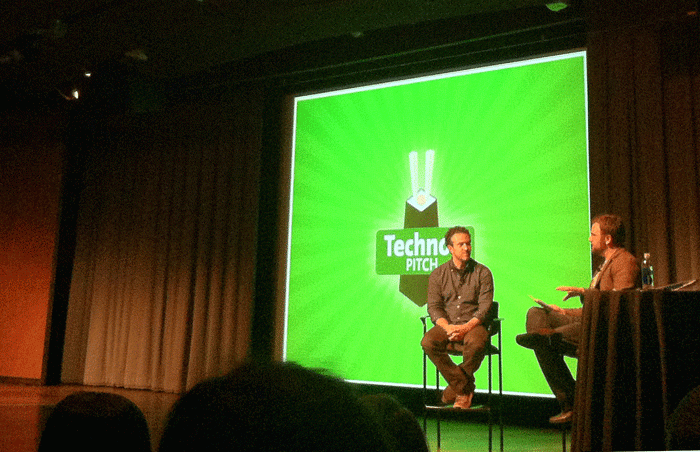This month’s speaker was Jason Fried, the founder of 37signals and the co-author of REWORK. Fried opened his talk with a video from Harvard Business School professor Clayton Christensen, who coined the term disruptive technologies.
After showing the video Fried explained that watching it changed the way he thinks about business. He now understands an important distinction: People don’t buy products to solve problems, they hire them to do a job.
“You can’t think about a product as solving the problem, you have to think about it as doing a job,” Fried said. It is only then that you realize who your competitors are. Thinking about the job the product does provides a much more deeper insight into what customers really want and how you can sell them your product.
Once he began thinking this way, Fried realized people actually hire Basecamp, a 37singals project management tool, because they need to cover their asses—not because they’re looking for a great project management tool. Users said that they buy Basecamp because they need to be able to point at a date and time and confidently say they delivered a file.
Understanding the job that Basecamp does, not just the features it has, has influenced 37signals to change their marketing from just a project management tool to something that can cover your ass.
Fried than sat down for a Q&A with Seth Kravitz, the founder of Technori. Here’s what we learned from his answers:
1. Impulse buying does not exist
Buying sounds like a one-time event but if you really talk to people, you will find out that the stories influencing their buying habits date back years. “People don’t wake up one day and decide to buy your product; they are actually switching from something else,” said Fried. After doing interviews he realized there is a long, emotion process of research involved in the buying process. “Your product has to be so exceptionally good that they are willing to put aside the emotional baggage to make the switch,” he said.
2. Saying no is powerful because it is selective
Fried is an advocate of saying no if you explain your reasons why. Being honest with your customers and telling them when you don’t think something is right for the product will help you stay focused and target the right people. “Saying no is really valuable because it is saying no to one thing. When you say yes that means you can’t do something else,” said Fried.
3. You don’t want dinner parties making products
Dinner parties are full of strangers making pleasantries. Fried says this type of short-term relationship is not good for companies or employees. Fried is a big fan of creating established teams that get to know each other really well over long periods of time. “Those are the teams that really build great things – you have to be able to push really hard against someone and argue intensely to create a great product. You aren’t going to do that with strangers,” he said.
Now on to Technori’s pitches of the night:
JustBecause
JustBecause lets users send gifts for $1 that are worth way more. The app helps early adopters of startups share new companies they love with their friends, making everyone happy. JustBecause works with exciting consumer facing startups like Uber, Birchbox, Warby Parker and JackThreads. Instead of just telling your friends about Uber, an on-demand car service, users of JustBecause can send them a free ride.
Ox&Pen
Ox&Pen is as smartphone-driven loyalty program for unique Chicago merchants and the customers who love them. The app gives users unlimited access to promotional offers and multiple ways to earn points: full-price purchases, check-ins and social shares. Available on iPhone and Android, Ox&Pen is focused on driving universal loyalty.
Swift Expo
Swift Expo is a software as a service solution targeted at the people running events behind the scenes. They help event organizers streamline event-staffing logistics, making sure your event runs smoothly and your crew is happy. The Swift Expo team has already helped make Chicago Ideas Week and New York Comic Con simpler and better for everyone involved.
SnagPad
The founders of SnagPad realize that people are trained to do jobs, not search for them. To solve this problem, they created a central portal for the unemployed. SnagPad helps users get hired by gamifying the job search, capturing opportunities, leveraging social media and staying organized.
Pear
Pear makes sponsorship easy, helping you find business and brands to support your group or event. After you choose the perfect sponsor just rally your group and enjoy your rewards. A clever way for brands to help small organizations, Pear also provides metrics so the sponsor knows what they are getting out of it.

